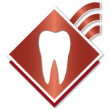Biological Dentistry
Biological dentistry is a comprehensive healthcare approach that applies sensible dental and functional medicine principles to enhance your health. There is some crossover between conventional and biological dentistry, but there are also some stark differences. The topics below briefly describe the primary goals in biological dentistry. Keep in mind there's so much more to biological dentistry that isn't easily categorized.
The goals below are sequential, meaning they should be addressed in order, from top to bottom, whenever possible. Depending on your current dental condition, any number of these steps may be a necessary component of your biological dental health plan. During your initial biological consultation, we'll discuss which steps actually do apply to you with a detailed explanation that will help you make the best choices for life long health.
You may also enjoy reading about the origins and philosophy of biological dentistry.

Amalgam fillings are almost always the first step on your biological journey. We know that mercury leaches out of amalgam fillings continuously in both vapor form (which is inhaled with every breath) and ionic form (which is injested with every swallow). True health cannot be achieved while endless streams of mercury flow into organs and wreak havoc on mineral balance, metabolism, and immunity. Mercury bioaccumulates in everyone, and it's toxicity can lead to chronic disease or any of a wide variety of esoteric illnesses. Eliminating these fillings safely using the SMART protocol therefore is one of the most important parts of biological dentistry.

Biochemical tuning is a critical component of your healing journey. Optimizing your metabolism helps reverse years of damage caused by toxic dentistry and will help prevent cavities and other chronic disease too. Achieving this includes detoxing heavy metals and toxic halides (fluoride and bromide), replenishing depleted vitamins and minerals, and restoring gland and organ function. This is best done with the guidance of a naturopathic or functional doctor, but we will help too. Important areas to focus on are heavy metal chelation, combined with supplementation of important nutrients such as magnesium, vitamin K2, iodine, and boron. We will discuss this in detail during your biological consultations. The outcome of subsequent treatment steps depends on this step.

Root canals are commonly performed in conventional dentistry to "save" teeth from extraction. They are convenient, but they are not harmonious with health. Avoiding root canals is a big part of biological dentistry. They all harbor toxic bacteria and can cause harmful effects to remote parts of the body in surprising ways. This concept is more advanced and warrants a deep dive. Your biological consultation will go into detail and help shed light on the effects your root canal treated teeth may be having on your health and why. Learn more about Root Canals.

Cavitations are the next advanced topic in biological dentistry. When teeth have been removed (wisdom teeth or any tooth) without using the biological protocol, poor wound healing results. Although the area may appear or feel perfectly healed, the area inside the jawbone often remains permanently unhealed, dead, or infected. Instead of healthy bone, the area will often harbor extremely toxic, inflammatory, and immune-disrupting tissue that may lead to a long list of esoteric issues including jaw pain, autoimmunity, and cancer. This issue is extremely common, occurring perhaps 92% of the time according to one study by doctors Hal Huggins and Tom Levy. Addressing cavitations is an integral part of biological dentistry and long-term health. Again, your biological consultation will go into detail and help shed light on this topic.

Implants are a popular way to replace missing teeth. When faced with losing a tooth such as a dead or root canal treated tooth, many questions arise. How will I look? How will I chew? What will happen to the balance of my bite and the jaw joint? These concerns are very valid and can be addressed thanks to modern dental technology. Conventional dentistry relies on titanium alloy implants, but biological dentistry benefits from metal-free, biocompatible zirconia implants. Learn more about dental implants including the important differences between metal and ceramic.

Jaw relationships determine the position of the tongue which in turn can interfere with airflow thru the airway (pharynx, larynx, and trachea). A constricted airway decreases oxygen levels during sleep. This can cause a long list of dysfunction and symptoms such as stress, grinding, anxiety, memory problems, snoring, sleep apnea, immune suppression, digestive issues, poor nutrient-absorption, acid-reflux, adrenal fatigue, autoimmune disease, and even cancer. This condition is exacerbated by unaware conventional dentistry that often shrinks the jaws and tongue space by retruding teeth with braces, headgear, or worse, by removing teeth to make space for a cosmetic result. The result is potentially catastrophic for health both in children and adults. Luckily, biological dentistry is well-equipped to address this epidemic, and it's an important step in our overall goal which is to increase lifespan and "healthspan."
Hopefully this introductory outline helps clarify some of the key goals in biological dentistry. But don't worry if you have even more questions now. During your biological consultation, you'll have the opportunity to discuss and explore these topics in much more detail.
To get a head start, web searches can provide some insight. Social media sites such as Facebook or Instagram can be good resources for alternative information. You'll find some helpful information scattered around our website too. Look around and feel free to write us with any questions or comments.







